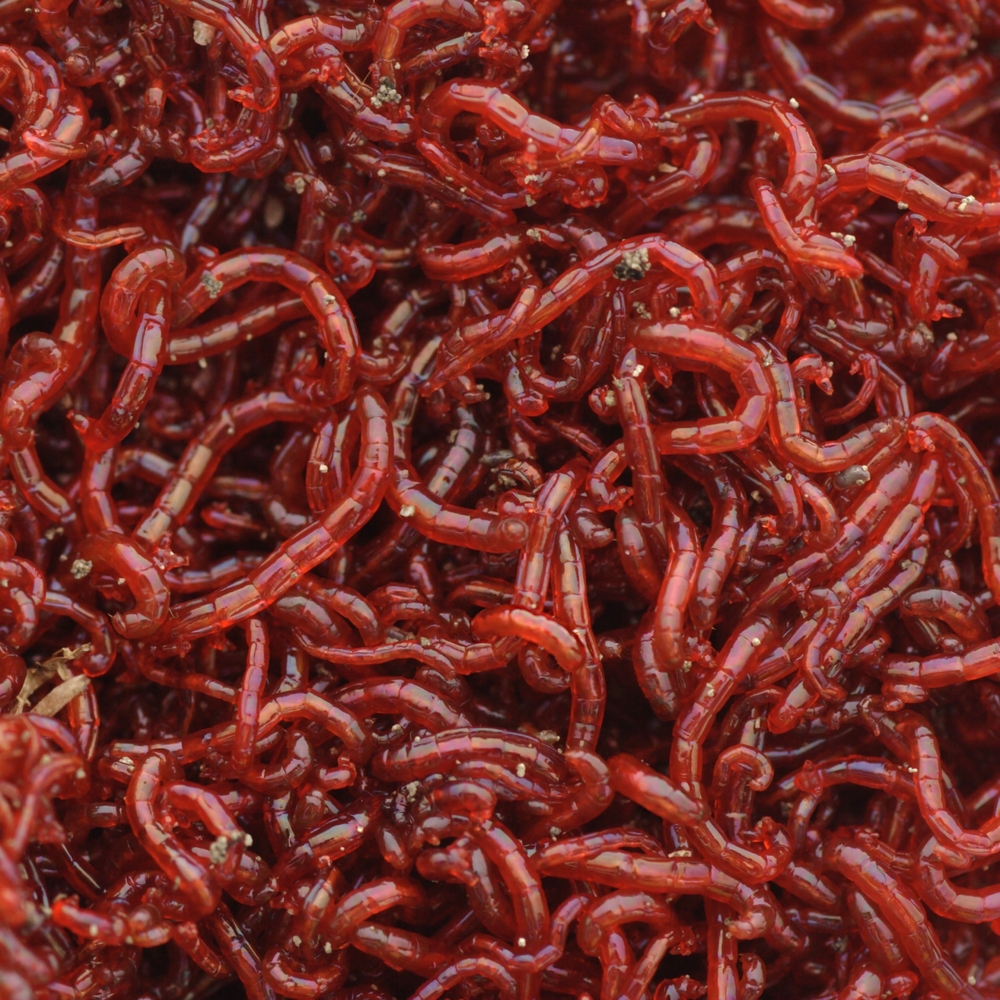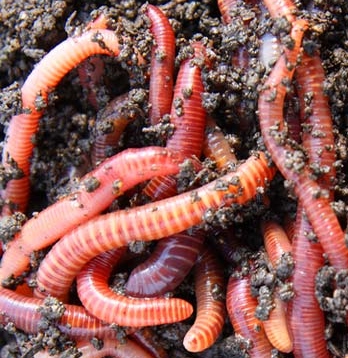Making Use Of Red Wigglers for Effective Organic Garbage Disposal
Using red wigglers for natural garbage disposal presents an engaging method to taking care of food scraps while promoting ecological sustainability. These worms not only improve waste decay yet additionally produce valuable worm spreadings, which can substantially enhance dirt wellness. Their capacity to process large volumes of natural product with marginal effort positions them as an easily accessible solution for families and communities alike. Recognizing the nuances of setting up a successful worm container and keeping an optimal habitat is critical for maximizing their benefits. The following actions in this procedure may surprise you.
Benefits of Utilizing Red Wigglers
Among one of the most engaging benefits of making use of red wigglers for natural waste disposal is their remarkable effectiveness in composting. These worms, clinically understood as Eisenia fetida, are particularly adjusted for damaging down natural products, enabling them to refine waste approximately two times their body weight daily. This quick disintegration not just increases the composting procedure yet additionally creates nutrient-rich worm spreadings that substantially boost dirt high quality.
Furthermore, red wigglers add to a reduction in landfill waste. By diverting natural products from garbage dumps, they assist reduce methane emissions-- a potent greenhouse gas. This eco-friendly advantage is vital in the battle against climate adjustment.
In addition, red wigglers are low-maintenance and can prosper in different environments, making them available for both novice and seasoned composters. Their capacity to replicate rapidly ensures a constant populace, helping with ongoing waste handling.
Establishing Your Worm Container
Developing an efficient worm bin is crucial for making the most of the advantages of composting with red wigglers. The very first step is picking a proper container. A bin constructed from plastic or wood, with an ability of 10 to 20 gallons, is suitable. Guarantee the container has appropriate drainage openings to avoid excess dampness, as red wigglers flourish in a wet however not soaked atmosphere.
When the container is established up, present the red wigglers, permitting them to adapt to their brand-new setting. A well-kept bin will not only sustain the wellness of the worms yet likewise assist in reliable decay of organic waste.
What to Feed Red Wigglers
An understanding of the suitable diet for red wigglers is crucial for maintaining a healthy worm population and optimizing composting effectiveness. Red wigglers prosper on a varied diet plan that largely contains organic products. Suitable food sources include vegetable scraps, fruit peels, coffee premises, eggshells, and shredded paper. These things not just offer crucial nutrients but additionally add to the moisture equilibrium within the worm bin.
It is vital to avoid specific foods that can damage the worm population. Red wigglers should not be fed meat, dairy items, oily foods, or processed things, as these can draw in pests and create unpleasant smells. red wigglers. In addition, citrus fruits and hot foods need to be minimized, as their level of acidity can be harmful to worms
Monitoring the worm container for food consumption prices will assist guarantee that red wigglers are obtaining an ample diet regimen while preserving an efficient composting environment. Correct feeding methods are necessary for promoting a thriving community within the worm bin.
Maintaining Your Worm Environment
A properly maintained worm environment is important for the health and wellness and productivity of red wigglers. To guarantee optimal problems, it is essential to check temperature level, dampness, and oygenation within the worm container (red wigglers).
Wetness levels need to be kept regular; the bedding should perspire yet not soaked. An excellent guideline is to keep moisture at approximately 70% to 80%. If the bed linens ends up being as well damp, it can lead to anaerobic conditions that are unsafe to the worms. Adding completely dry carbon-rich materials, such as shredded paper or cardboard, can assist soak up excess wetness.

Making Use Of Worm Spreadings in Horticulture
Rich in nutrients and useful microbes, worm spreadings work right here as an extraordinary organic fertilizer for gardening. Created with the digestion procedures of red wigglers, these spreadings consist of a selection of crucial nutrients, consisting of nitrogen, phosphorus, and potassium, which advertise durable plant development. Unlike artificial plant foods, worm castings provide a slow-release system, guaranteeing that nutrients are offered to plants over an extended period, thereby reducing the risk of nutrient leaching and dirt deficiency.
Along with nutrient web content, worm castings enhance dirt structure and oygenation, enhancing moisture retention and water drainage. The microbial life present in worm spreadings assists to subdue microorganisms and promotes a healthy and balanced soil ecological community, additional profiting plant health and wellness. When incorporated right into the soil or utilized as a top clothing, worm castings can substantially boost seed germination prices, root advancement, and overall plant vitality.
For optimum results, garden enthusiasts ought to use worm castings at a price of 1-2 inches per square foot, blending them into the soil or incorporating them right into potting blends. On the whole, using worm castings is a green strategy to enhancing soil fertility and making certain prospering yard environments.
Final Thought

Comments on “Composting champions red wigglers: Feeding them properly”